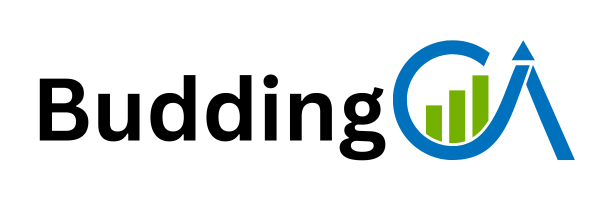The Chartered Accountancy (CA) exams conducted by the Institute of Chartered Accountants of India (ICAI) have always been known for their rigorous standards and challenging nature. The May 2025 exam session, however, has set a new precedent with pass percentages hitting historic lows across all levels — Foundation, Intermediate, and Final. This unprecedented outcome has sent ripples across the CA community, raising important questions about exam difficulty, student preparedness, and the path forward for aspirants.
This article delves deep into the May 2025 CA exam results, compares them with previous years, explores the reasons behind the steep decline, and discusses how students can adapt to succeed in future attempts. We also discuss ongoing debates on transparency and reforms in ICAI’s evaluation system.
A Close Look at May 2025 CA Exam Results
The May 2025 results have drawn attention due to the alarmingly low pass percentages recorded at all stages of the CA journey:
- Foundation Level:
- Group 1 Pass Percentage: 14.17%
- Group 2 Pass Percentage: 22.16%
- Both Groups Combined: 14.05%
- Intermediate Level:
- Group 1 Pass Percentage: 14.67%
- Group 2 Pass Percentage: 21.51%
- Both Groups Combined: 13.22%
- Final Level:
- Group 1 Pass Percentage: 22.38%
- Group 2 Pass Percentage: 26.43%
- Both Groups Combined: 18.75%
In total, only 14,247 candidates qualified as Chartered Accountants from this session, out of the tens of thousands who appeared. Such low percentages underscore the demanding nature of the exams and the heightened standards maintained by ICAI.
Comparing May 2025 Results with Past Years
It is important to understand how these figures stand in relation to historical trends. The CA exam pass rates have fluctuated over the last five years without showing a consistent upward or downward pattern.
CA Final Exam Trends (Group-wise Pass %)
| Exam Session | Group 1 Pass % | Group 2 Pass % | Both Groups Pass % |
|---|---|---|---|
| May 2025 | 22.38 | 26.43 | 18.75 |
| Nov 2024 | 16.8 | 21.36 | 13.44 |
| May 2024 | 27.35 | 36.35 | 19.88 |
| Nov 2023 | 9.46 | 21.6 | 9.42 |
| May 2023 | 11.91 | 31.43 | 8.33 |
The May 2025 results show a slight improvement compared to the historically low November 2023 session, but still remain much lower than the more encouraging figures of May 2024.
CA Intermediate Exam Trends (Group-wise Pass %)
| Exam Session | Group 1 Pass % | Group 2 Pass % | Both Groups Pass % |
|---|---|---|---|
| May 2025 | 14.67 | 21.51 | 13.22 |
| Jan 2025 | 14.17 | 22.16 | 14.05 |
| Sept 2024 | 15.17 | 15.99 | 5.66 |
| May 2024 | 27.15 | 18.28 | 18.42 |
| Nov 2023 | 16.78 | 19.18 | 9.73 |
The drop in Intermediate pass rates highlights a worrying trend for students in the middle stage of their CA journey, with May 2025 figures showing declines compared to some previous sessions.
Foundation Level Pass Rates
The Foundation level too reflected this downward trend, especially in Group 1 with only 14.17% passing. Though Group 2 fared slightly better at 22.16%, the overall results remain challenging for candidates.
Why Did the Pass Percentage Hit Historic Lows?
Several factors have contributed to this sharp decline in pass percentages. Understanding these is crucial for aspirants who want to improve their chances in upcoming exams.
1. Increased Difficulty of Exam Papers
One of the key reasons cited by coaching experts and students alike is the increased difficulty level of the May 2025 exams. Particularly, the Audit paper posed severe challenges.
- The Audit paper’s multiple-choice questions (MCQs) were reported to be unexpectedly tough.
- Many students could attempt only 10 out of 30 marks in the MCQ section.
- The exam structure is evolving to test analytical and conceptual understanding rather than rote memorisation.
- Students described MCQs as confusing, requiring deep reasoning and problem-solving skills rather than straightforward recall.
2. Shift in ICAI’s Evaluation and Assessment Pattern
ICAI appears to be moving towards a more skill-based assessment model, encouraging candidates to think critically and apply concepts rather than simply reproduce memorised answers. This has affected student performances, especially those who prepared by memorising past questions without a strong grasp of fundamentals.
3. Candidate Preparation and Study Approaches
Several deficiencies in student preparation have emerged as significant factors:
- Poor time management during preparation and in the exam hall.
- Heavy reliance on coaching institutes, with insufficient self-study.
- Lack of effective revision strategies and failure to analyse previous mistakes.
- Superficial understanding of a vast and dynamic syllabus.
ICAI’s syllabus covers many topics requiring up-to-date knowledge and continuous learning, but many candidates fail to engage at this depth.
4. Question Pattern Changes
The examination papers blended new and repeated questions, with around 10-15 questions familiar and the rest demanding fresh insights. Candidates who only practised previous years’ question papers found this challenging.
What Does This Mean for CA Aspirants?
Impact on Student Morale
The low pass rates have affected the confidence and motivation of CA aspirants.
- Many students report feelings of stress, anxiety, and self-doubt.
- The perception of failure causes them to feel “stupid” or inadequate.
- Comparing oneself to peers who pass intensifies pressure.
- This mental burden sometimes leads to burnout before the preparation begins.
Necessity for Changing Preparation Strategies
The traditional approach of memorising and last-minute cramming is becoming obsolete. Successful candidates now need:
- Daily structured study plans with achievable targets.
- Regular self-evaluation through mock tests and practice papers.
- Focus on conceptual clarity and analytical reasoning.
- Balanced mental health practices, including breaks and meditation.
Coaching Institutes’ Response
Coaching centres have started integrating psychological coaching and rigorous test series to:
- Help students manage stress effectively.
- Prepare them for the evolving exam pattern.
- Improve evaluation and feedback mechanisms.
Increased Competition and Exam Frequency
From 2025 onwards, ICAI introduced three exam cycles per year — January, May, and September — replacing the earlier bi-annual schedule. This means:
- More frequent opportunities to appear, reducing wait times.
- However, the competition may intensify as more candidates remain active.
- Students must maintain consistent preparation without burnout.
What Should Students Who Didn’t Pass Do Next?
Rechecking and Verification of Marks
Candidates unsure about their results can opt for ICAI’s verification process:
- Apply within 30 days of result declaration on the official website.
- Fee: ₹400 per paper for rechecking marks.
- Option to request certified copies of answer sheets for ₹500 per paper.
- Scanned copies of evaluated answer books can be inspected for ₹1000 per paper.
- Realistically, less than 2% of rechecking applications lead to mark changes.
Planning for the Next Exam Cycle
- The next attempt after May 2025 is September 2025.
- Applications usually open 60 to 75 days before the exam.
- Deadline for applying is expected by mid-July 2025.
- Candidates should plan preparation carefully, using the time wisely.
Improving Preparation Methods
Successful students recommend:
- Detailed analysis of past performance to identify weak subjects.
- Creating a structured daily timetable with clear targets.
- Practising previous years’ question papers under exam conditions.
- Joining peer study groups for doubt clarification.
- Seeking guidance from recent toppers or successful candidates.
- Avoiding stress through balanced study and rest routines.
Calls for Greater Transparency and Evaluation Reforms
The historic low pass percentages have also fueled calls for transparency and reform in ICAI’s evaluation process.
Student Protests and Advocacy
Under slogans like “Dear ICAI please change”, students have demanded:
- The right to full re-evaluation of answer sheets, rather than only verification.
- Public availability of marking schemes and answer keys.
- Adoption of Computer-Based Examination Systems (CBES) to reduce examiner bias and errors.
- Minimum qualifications for examiners and dedicated examiners during evaluation periods.
Prominent voices supporting these reforms include former ICAI presidents and political leaders.
ICAI’s Current Measures and Responses
- Introduction of digital and centralized evaluation for quality assurance.
- Enforcement of stepwise marking — any answer not marked stepwise is rejected.
- Relaxation of rules to allow sharing evaluated answer copies with students.
- ICAI maintains that high standards are essential to preserve the profession’s integrity.
- Discussions ongoing with regulators about amending regulations to permit re-evaluation.
Conclusion
The May 2025 CA exam results mark a pivotal moment for India’s chartered accountancy aspirants. The low pass percentages across Foundation, Intermediate, and Final exams highlight the increased difficulty of assessments and the need for deeper conceptual understanding.
For students, this means adapting preparation strategies, focusing on analytical skills, time management, and mental resilience. The introduction of thrice-yearly exams offers more chances but also demands sustained dedication.
At the same time, ICAI faces mounting pressure to improve transparency and fairness in evaluation. While it has taken steps toward digitalisation and better oversight, the calls for comprehensive reforms and re-evaluation rights continue.
Ultimately, success in the CA journey demands perseverance, strategic preparation, and the ability to learn from setbacks. Aspirants who rise to these challenges will continue to uphold the esteemed legacy of the Chartered Accountancy profession in India.
If you are preparing for upcoming CA exams, keep in mind that consistent effort, conceptual clarity, and smart strategies are your best allies. Stay focused, seek support where needed, and use every opportunity to improve. Your determination can turn even the toughest challenges into milestones of success.
Calling all CA dreamers!
🔴 Are you tired of searching for the perfect articelship or job?
Well, fear no more! With 10K+ students and professionals already on board, you don't want to be left behind. Be a part of the biggest community around! Join the most reliable and fastest-growing community out there! ❤️
And guess what? It’s FREE 🤑
✅ Join our WhatsApp Group (Click Here) and Telegram Channel (Click Here) today for instant updates.




